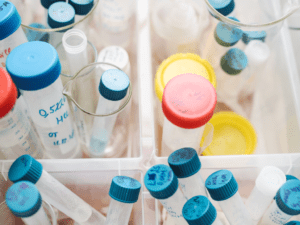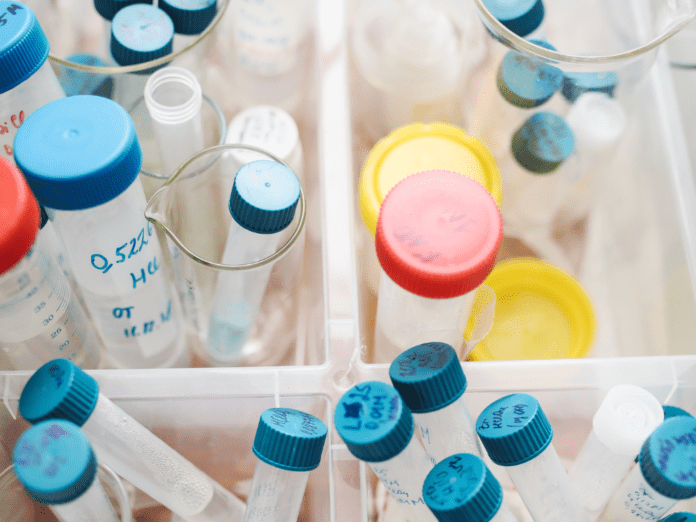If you’re using synthetic urine to pass a drug test, you might be wondering if labs can tell the difference. The answer is yes, labs can tell the difference between real and synthetic urine. Synthetic urine is made to mimic real urine, but there are still some differences. For example, synthetic urine doesn’t contain urea or creatinine, which are waste products found in real urine. Additionally, synthetic urine usually has a higher pH level than real urine. Each drug metabolite has a specific pH it’s excreted at and therefore if any drug metabolites are excreted at a high pH they most likely originate from synthetic urine.

What is synthetic urine?
Synthetic urine is a laboratory-created substance that mimics the chemical and physical properties of human urine. It is used for a variety of purposes, including drug testing, scientific research, and cleaning products. ;Synthetic urine is made from a variety of chemicals, including urea, creatinine, uric acid, and other compounds found in human urine. These chemicals are mixed in a solution that closely resembles the composition of human urine.
– How to Tell if Urine is Real or Fake
There are many ways to tell the difference between real and synthetic urine.There are several ways to approach this question.One way to think about color is by looking at its spectrum. Real urine is typically a yellowish color, while synthetic urine is often clear or slightly yellow. Another way to tell the difference is to smell the urine. Real urine has a strong, ammonia-like smell, while synthetic urine often smells like chemicals or plastic. Finally, you can also tell the difference by looking at the texture. Real urine is typically smooth and runny, while synthetic urine is often thicker and less runny.
– Yes, labs can tell the difference between real and synthetic urine
Labs can tell the difference between real and synthetic urine by testing for creatinine levels.Creatinine is a waste product that is produced by the body and expelled in urine. This molecule helps to maintain muscle function and can be found in the blood and urine. Synthetic urine does not contain creatinine, so a lab can tell if it is real or fake based on the presence or absence of this substance.
– How to Tell if Urine is Real or Synthetic
There are a few ways to tell if urine is real or synthetic.There are a few ways to determine if someone is pregnant. One way is to look at the color of their urine. If it changes color, it might be a sign that they are pregnant. If something is yellow, it’s most likely real. If the coloring is a light yellow, it’s probably not natural. Urine can be easily identified by its distinctive smell. Urine that is real will have a strong, ammonia-like smell. Synthetic urine usually has a faint chemical smell. If you still have trouble getting the urine to heat, here are some other tips that may work. When real urine is heated, it will usually change in appearance from clear to cloudy. Synthetic urine, on the other hand, will not change in appearance when heated.
Do you know the difference between real and synthetic urine?
The main difference between real and synthetic urine is that real urine is waste product excreted by the body, while synthetic urine is a man-made solution that mimics the chemical properties of real urine.Urine from real people contains urea, creatinine, and other waste products, while synthetic urine does not. synthetic urine is often used in scientific research or in clinical settings where it would not be appropriate to use real urine.
If a lab finds out that the urine sample is synthetic, what will happen?
If a lab finds out that the urine sample is synthetic and not natural, they may report it to the authorities. Depending on the country, the consequences for providing false information on a urine drug test can be serious. In some cases, it may result in a fine or jail time. How can you tell if someone used fake urine? Fake urine will also be made at a different temperature than real urine; realistically you will want the temperature of their sample to be within a quarter degree of their body temperature. A visual check can also tell you a lot about a sample. ;
– The 4 Best Fake Urine Brands That Actually Work
There are a lot of reasons why people might need to use fake urine. ;Maybe you’re a drug user and you need to pass a drug test for work. ;Maybe you’re in a situation where you can’t use the bathroom and you need to go urgently. ;Whatever the reason, if you need to use fake urine, it’s important that you choose a brand that will actually work.
There are a lot of fake urine brands on the market, but not all of them are created equal.
Some are more likely to be detected by testing facilities, and some just don’t work as well as others. To save you the hassle of trial and error, we’ve compiled a list of the 4 best fake urine brands that actually work:
- 1. Quick Fix Plus 6.2
- 2. Sub-Solution
- 3. Clear Choice Sub-Solution
- 4. Spectrum Labs Quick Fix Synthetic Urine Plus
Some questions that are commonly asked are listed below:
Is it okay to store the synthetic urine?
The best way to store your synthetic urine is in a cool, dark place. ;You should also make sure that the container is tightly sealed so that the urine does not evaporate. ;If you are using a powdered form of synthetic urine, you will need to mix it with water before storing it.
Is it possible to submit the natural urine sample taken an hour ago?
No, you cannot submit a urine sample that was taken an hour ago. ;Urine samples must be submitted within four hours of being collected in order to be considered valid.
Do Can Labs Detect Synthetic Urine?
Yes, labs can detect synthetic urine. ;The main ingredient in most synthetic urine products is urea, which is a waste product found in human urine. ;Urea is not found in animal urine, so this is how labs can tell if a sample is synthetic. ;Other ingredients in synthetic urine may include creatinine, uric acid, and salts.
Conclusion
The short answer is yes, labs can detect synthetic urine.There are a few things to keep in mind when cleaning your room. First, not all labs test for synthetic urine. Second, even if a lab does test for it, there are ways to beat the system.
There are two main types of tests used to detect synthetic urine:Spectroscopy and chromatography are both types of scientific analysis used to identify the composition of substances. Spectroscopy looks at the light absorbed by a sample to identify its molecules. Chromatography separates compounds in a sample based on their chemical properties.
Labs that use spectroscopy can usually tell if a sample is synthetic because most synthetic urines don’t contain the same range of compounds found in real urine. However, there are some brands of synthetic urine that do contain all the right compounds. These brands are more expensive, but they’re also more likely to fool a spectroscopy test.
















